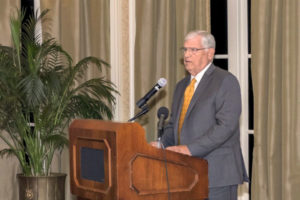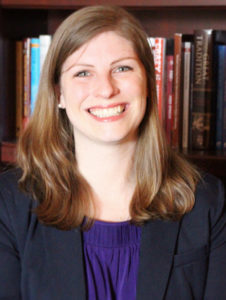Improving Higher Education in North Carolina and Beyond
With North Carolina’s population hovering around 10 million, it’s easy to understand why the state’s 163 colleges and universities (public and private) are an issue of discussion and concern for parents, lawmakers, and students alike. Standing as an independent think tank dedicated to improving this complex system of higher education is the James G. Martin Center for Academic Renewal.
“We’re trying to bring realism, transparency, and excellence back to the universities, while supporting the things that make our institutions of higher learning great,” said Martin Center Board Chairwoman Jane Shaw.
The Martin Center works toward that goal with robust research and reports, events, and publications to better inform decision-making within the higher education sphere.
Early Work

Originally founded as the John W. Pope Center for Higher Education, the Martin Center operated as a division of the John Locke Foundation before becoming an independent group in 2003. However, after years of standalone success, it was clear that the ‘Pope’ name generated some confusion (The John William Pope Foundation is a private-family foundation also located in Raleigh). With the blessing of the Pope family, the renamed James G. Martin Center for Academic Renewal, debuted in January 2017. The moniker change honors longtime board member and former North Carolina Governor James G. Martin, an experienced educator outside of his political career.
Despite the name change, the Martin Center remains focused on its mission. Chief among the issues for President Jenna Robinson are free speech on campuses, accountability and transparency in the public systems, and encouraging free market innovation in higher education of all types. Devoted longtime staff that members Director of External Relations George Leef and Senior Fellow Jay Schalin help lead a team of researchers and writers on these issues.
Putting a Focus on Free Speech
The Martin Center has found that universities have fallen prey to a ‘political correctness’ discourse. Many schools are resisting the diversity of ideas – often turning away moderate or conservative and moderate philosophy in favor of what they feel is a more enlightened, liberal agenda.
Additionally, they have worked with the Foundation for Individual Rights in Education (FIRE) to help reform ‘speech codes,’ the university policies enacted that govern student speech. In many cases these speech codes infringe on students’ First Amendment rights and create an environment of free speech suppression.
Promoting Accountability and Transparency
The massive UNC system of schools and the community college system jointly make up over $3.5 billion of North Carolina’s appropriated budget.
All of this funding comes directly from the state’s largest revenue source, taxpayer dollars.
“Where we have public institutions we want to make sure they are governed responsibly and are providing value to the students and to the taxpayers,” said President Jenna Robinson. Robinson also points out that university spending has increased faster than the rate of inflation
The Center has been vocal about the need for increasing cost-effectiveness in both the administration and governance of the UNC system. In order to do that, the Martin Center monitors meetings of the UNC Board of Governors (the UNC system’s governing body) and makes their own budget recommendations to boost efficiencies.
Encouraging Free Market Innovation in Higher Education

In the mid-2000s, rising tuition rates and a poor job market created a perfect storm of student loan debt and unemployment for many millennials. During that time online education, distance education, and innovative approaches to a four-year degree path began to form. The Martin Center stands behind these free market approaches to emerging problems with the traditional higher education model.
Robinson emphasizes the importance of ending the stigma associated with community college and nontraditional models of higher education. She views it as one of the greater challenges that the Martin Center faces changing in coming years.
“The people who make decisions about public policy have, for the most part, successful traditional experiences in higher education,” said Robinson. “For a lot of people this model didn’t work. And entrenching this [traditional model] is doing a disservice to a lot of people. Just because we want more models doesn’t mean we want to destroy your alma mater. We want people to have more opportunities, and not all opportunities are going to look exactly like your success story.”
Sharing Ideas One Story at a Time
To share their ideas and work, the Martin Center’s scholars and researchers write articles that often appear in regional and national publications. They also research and analyze data that might otherwise go unnoticed. Their Carolina Cardinal and Clarion Call email newsletters cover in-state and national educational issues, respectively. They also host events on campus and work with leaders in higher education to better the system.
For more information about the Martin Center, including access to their articles and newsletters, visit www.jamesgmartin.center.